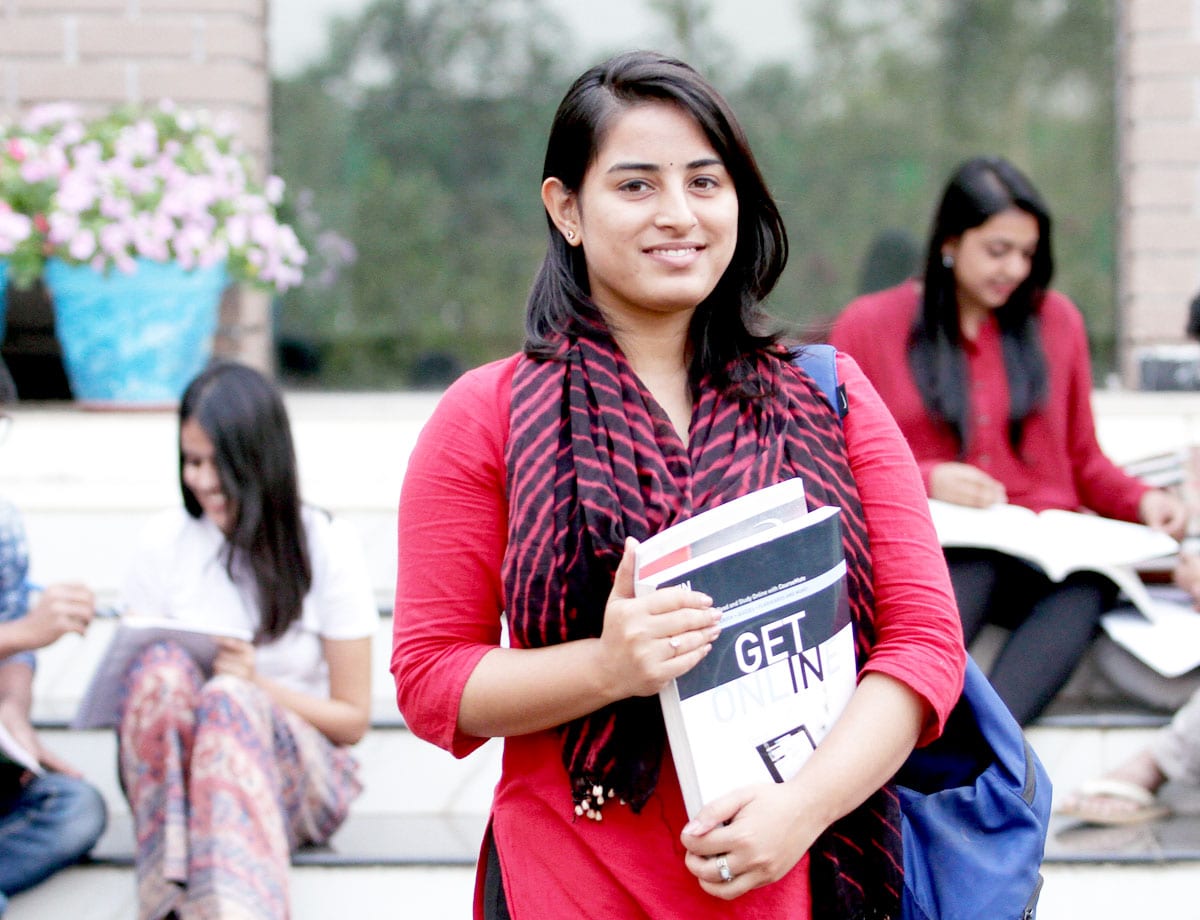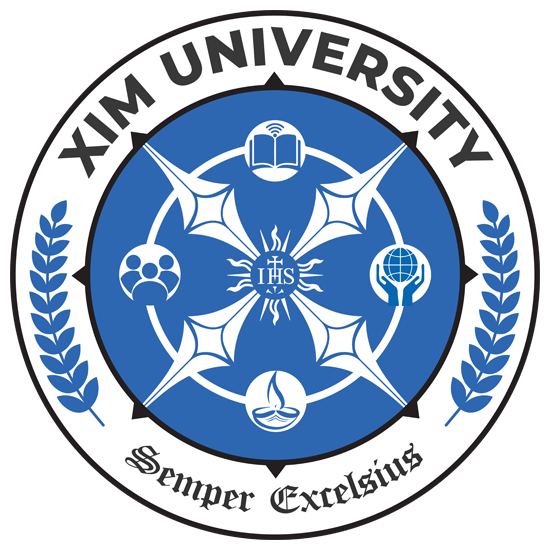B.Sc.- Sustainable Development (Hons.)
B.SC. - SUSTAINABILITY DEVELOPMENT (HONS.)
OFFERED BY School of Sustainability
Class XII (or equivalent) in any discipline, with at least 50% marks in aggregate. Final year +2 students, who are expecting their results during 2025, can also apply. Offers of admission to such candidates, if made, will be provisional and will be automatically cancelled in the event of their failing to complete all the requirements for obtaining the degree before July 15, 2025.
Applicants are required to fill-up the application form online at: www.xim.edu.in . Upon successfully filling the online application form and paying the relevant application fee, the applicant will be intimated by email about the acceptance of the form.
Final selection of the students shall be done purely on merit which shall be decided on the basis of academic performance in class 10 and class 12 examinations and Personal Interview.
The program will begin by the third week of July 2025.
The students will be given a Manual of Policies and Regulations, at the time of registration/admission, which will be binding on them.
The last date to fill up the application form is March 31, 2025.
Online Application will be Opening Shortly…
Online Application is Closed…

Admission Related
Email: [email protected]
MARUTI PRASAD NANDA
Contact: 7894-218-494
Program Related
Email: [email protected]
Mr. JAYANTA KUMAR DAS
Contact: 9437231977
To know more about B.Sc-SD program visit : https://sos.xim.edu.in/academic-programs/ug-programs/b-sc-hons-in-sustainable-development-b-sc-sd/
Program Details
- Three year Bachelor’s Degree Program in Sustainable Development (B.Sc. – SD)
This programs is offered with an aim to reach out to the large audience of students and youth that are likely to be both decision makers and beneficiaries with regard to Human Development and Sustainable Development in the next generation. Just as the importance of planning in the welfare State permeated people’s consciousness through the educational curriculum, it is hoped that such academic programs will help integrate Human Development and Sustainable Development into the mainstream debate on development as formulated through university textbooks and research. Only when the concept and practice of these two developments mingle with academic debate and research and consequently give rise to schools of interpretation, can it truly be said to have become a field, as distinct from a fad or preoccupation of a few.
Admission Procedure
Applicants are required to fill-up the application form online at: www.xub.edu.in . Proper weights are assigned to performance in the class 10 and 12 examinations.
Salient Features
- Students with 85% marks in aggregate in +2 examination will be provided 50% course/tuition fee waiver only at the time of admission. This offer will be continued if the student secures a minimum CGPA of 8.0 in each of the subsequent years.
- Meritorious Scholarship - topper of each university program at the end of the year will get scholarship worth 50% course/tuition fee waiver.
- Scholarship for the SC/ST/ECONOMICALLY BACKWARD/MINORITY student - 3 each/year/ program with 50% course/tuition fee waiver.
- The career advancement courses like MBA coaching (CAT, XAT etc.), CA, CS, Indian Civil Services (IAS, IFS, IPS etc.) will be made available on campus (on payment basis).
Hostel Facilities
Three year bachelor’s degree program in Sustainable Development (B.Sc. – SD )
The United Nations Millennium Development Goals (MDGs) which are a set of 8 goals that all 191 UN member states had agreed following the Millennium Summit of the United Nations in 2000 and following the adoption of the United Nations Millennium Declaration commit world leaders to combat poverty, hunger, disease, illiteracy, environmental degradation, and discrimination against women by 2015. No doubt, the 15 year concerted efforts of national governments, the international community, civil society and the private sector have helped expand hope and opportunity for people around the world and has produced the most successful anti- poverty movement in history, yet the job is unfinished for millions of people. We need to go the last mile on ending hunger, achieving full gender equality, improving health services and getting every child into school. The time has come to shift the world onto a sustainable path.
The framing of developmental debates is going to change a bit in the coming days with the adoption of the Post-2015 Development Agenda in the forthcoming UN Summit in Sept 2015 in New York. The negotiations to finalize the agenda – Transforming our world: The 2030 Agenda for Global Action – are in their last stages. What we will soon see would be called Sustainable Development Goals, Goals (SDG). These SDGs would be replacing the Millennium Development Goals (MDGs) that are set to expire at the end of 2015. The SDGs will guide policy and funding for the next 15 years, beginning with a historic pledge this coming September to end poverty, everywhere permanently. The SDGs were first talked about at the United Nations Conference on Sustainable Development (popularly known as Rio+20) held in Rio de Janeiro in June 2012. The 17 goals that one is more likely to hear about in the coming days are: end poverty and hunger, ensure well being and quality education, gender equality, water and sanitation, affordable and sustainable energy, productive employment, technology to benefit all, reduce inequality, safe cities and communities, sustainable consumption, combat climate change, conserve and sustainable use of marine resources, restoration of terrestrial ecosystems, promote peace and justice and revitalizing the global partnership for sustainable development. They are action-oriented, concise and easy to communicate, limited in number, aspirational, global in nature and universally applicable to all countries while taking into account different national realities, capacities and levels of development and respecting national policies and priorities.
Sustainable development which means development that meets the needs of the present without compromising the ability of future generations to meet their own needs is one of the most pressing challenges facing humanity today. Sustainable development recognizes the inseparable link between people, the planet, and wealth; it advocates for policies that fully consider these three components to ensure that none negatively impact the others. Achieving sustainable development requires systemic and integrated approaches that consider the complex interactions between the planet’s natural and social systems, while working at multiple levels of society, from the local to the global. The role of universities in this context assumes significance in order to create and nurture the next generation of managers and leaders who can anchor sustainable development. Building on XIMB’s (Xavier Institute of Management Bhubaneswar) cutting-edge programs in business, rural management and sustainability management and its uncompromising spirit of caring for nature, Xavier University Bhubaneswar (XUB) has decided to respond to the global call and cry to promote the cause of sustainable development.
In order to promote sustainable development that can contribute to nation building a first of its kind Bachelor Degree Program in Sustainable Development of XUB is founded on the belief that students must be trained in a variety of disciplines in order to be effective leaders in the field of Sustainable Development. This program aims to equip students with values of equity, justice, peace and ecological and ethical sensitivity towards creating a future world of the 21st century which deeply connects nature and humanity.
Program Objectives
- Analyze the effects of historical, social, political, economic, cultural, and global forces on the area under study.
- Measure and Report Sustainable Development Goals and will be able to critically evaluate theories and research on Sustainability.
- Identify, plan, revise, analyze, utilize, critique, assess and evaluate development programs and projects.
- Appreciate the significance of Science, Environment, Technology, Society
- Acquire in-depth knowledge of the local, national and global perspectives and experiences in Sustainable Development and develop their problem solving and analytical thinking skills through exposure to practical examples.
- Acquire in-depth knowledge on Ecology, Evolution, Global Warming, Climate Change, Natural Resources Management, Sustainability, Policies, Laws and Governanc
- Develop a deeper knowledge of the sustainable energy systems and the natural and social sciences that are important to sustainable development.
- Compete and make informed choices for pursuing higher education at Post Graduate and doctoral level in the field of social sciences and sustainable development.
Program Focus
- Sustainability and Human Development
- Measuring, Reporting of SDGs and Evaluating Programs and Projects.
- Ecology, Evolution, Global Warming, Sustainable Energy Systems, Climate Change and Natural Resources Management
- Sustainability, Policies, Laws & Governance
- Health, Nutrition, Education, Water and Waste Management
- Principles of Sustainable Economic Development
- Science, Environment, Technology & Society
Pedagogy
There will be multiple teaching methods including interactive lecture sessions, case analysis, group discussions, interaction with experts and practitioners and use of videos, documentaries and films related to Sustainabiity. The program will be research based and will also have the following practical components of 5 credits each.
2 Mini Research Projects (5 Credits each – one month in 2nd year and one month in 3rd year)
As already mentioned that the program is research based, the students will be required to take up two mini research projects which are micro studies, either desk based or desk and field based on a topic of current interest.
Summer Internship (two months in 3rd year)
Students will spend eight weeks in various organisations to learn and experience how sustainability is being mainstreamed in both organisations and the community. One of the important elements of Summer Internship is conducting a Sustainability Audit of the host organisation. The Summer Internship intends to equip the students focus on sustainability challenges in industry, government and civil society, and participate in the analysis and the problem solving process.
Capstone Project (5 Credits – two months in 3rd year)
Each student has to undertake a capstone project in which they have to prepare a Sustainable Development Report of the project area. Capstone Projects are usually more “experiential” projects where students take what they’ve learned in the class and apply it to examine a specific idea in the form of an action project and write his/her learning and experiences which can add to development of knowledge, skill and behavioral change. Students meet with practitioners and work with real world clients in need of sustainable solutions for specific problems.
Program Structure
The program will have a Foundation Course in the 1st year, Core Course in the 2nd year and Applied Course in the 3rd year spread over 6 semesters in these three years. A student has to earn a total of 150 credits (50 credits in each year)
DEGREE
First Year (Foundation Courses)
(50 Credits- Semester 1 & 2)
- English Language & Business Communication
- Introduction to IT
- Introduction to Social Sciences –Sociology
- Introduction to Social Sciences – Economics
- Statistics and Quantitative Analysis
- Introduction to Philosophy and Science
- Introduction to Behavioral Science – Psychology
- Introduction to Social Sciences – Political Science
- Concept and Evolution of Human Development
- Introduction to Natural Science
Second Year (Core Courses)
(50 Credits- Semester 3 & 4)
- Social Research Methods
- Measuring and Reporting on Human Development
- Evaluation of Programs and Projects
- Law and Human Development
- Geography and Human Development
- Sustainability and Human Development
- Dimensions of Human Development
- Select Issues in Human Development
- Mini Research Project I
Third Year (Applied Courses)
(50 Credits - Semester 5 & 6)
- Managerial Competencies for Human Development
- Governance and Institutions for Human Development
- Human Rights and Human Development
- Faith and Human Development
- Mini Research Project II
- Financing Human Development
- Ethical Dimensions of Human Development
- Indian Perspectives and Experiences
- Capstone Project
